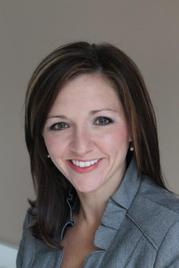|
Catherine Johnson, See the Triumph Guest Blogger For over ten years, a systemic approach to addressing issues of family violence has been sprouting across the nation. This approach looks at community violence at the macro-level using a three pronged approach, which includes collaboration amongst law enforcement, prosecution, and social support services. The Family Justice Center (FJC) model is transforming how services are delivered, making big waves not only in developing a coordinated community response to violence but also in better supporting those individuals and families seeking safety. The FJC model is a nationally recognized multidisciplinary approach that brings together professionals, under one roof, to provide better coordinated, streamlined, and integrated services. There are currently over 80 operating centers and over 100 communities in some stage of the planning for a FJC or similar co-located, multidisciplinary approach across the country and the world. The founders are the FJC model often say, "Dream Big, Start Small". As the first director of the Guilford County Family Justice Center in North Carolina, these words ring ever true. How does a community dream about how life could be different for survivors of domestic and sexual violence? How does one imagine a community where survivors feel safe and supported by "the system"? How do we engage the private, government, and corporate sectors to invest in a new approach to responding to the epidemic of family violence? Big questions, right? Here in Guilford County, a group of dedicated professionals and community members have been charting a new course, dissecting the complex social issue of family violence at the systemic level, one step at time. As a licensed marriage and family therapist, I often relate my work with FJC collaborative partners to that of family counseling. One unique component of family work, particularly when a lot of family members are present in session, is that inevitably someone will spill the beans, name the elephant in the room, and expose the problems in the family. Families challenge one another; shine a spotlight on the good, bad, and ugly, while also adamantly resisting change. This dynamic also presents itself in collaborative work. FJC partners challenge one another and address complex issues, all while having a shared responsibility to make the community safer. Our collaborative partnership consists of folks from the medical, legal, law enforcement, educational, social services, and non-profit sectors. Just as the services provided are diverse, so are our relationships and partnerships. We are dreaming big...visioning a better way to give hope to hurting families. We are talking to those actively seeking safety and those who have done so in the past and soliciting feedback and suggestions for ways to improve our community's response. We are educating our community on being more fully engaged in addressing violence and calling each person to take action. Our work is evolving as we move from simply exchanging information to harmonizing our efforts and activities. Together, we are enhancing our capacity, and in doing so, lives are being changed. Radical things are happening. The collaborative energy, passion and dedication to improve the wellness and safety of this community is palpable! The synergy is electric and the momentum for change is like a fast-moving locomotive. Get on board and contribute to the big dream of living in a community that has eradicated violence in all forms.  Catherine Johnson is the first Director of the Guilford County Family Justice Center (FJC), a new public safety initiative through Guilford County that is designed to bring professionals together under one roof to provide coordinated collaborative services to victims of domestic violence, sexual assault, child maltreatment, and elder abuse victims. Previously, Catherine worked as the Director of Crisis Intervention Services for Family Services of Davidson County located in Lexington, NC. Catherine has over seven years of experience working with survivors of domestic violence and sexual assault. Catherine is a licensed marriage and family therapist in North Carolina and received master’s degree from the University of North Carolina at Greensboro. Catherine’s professional career has been dedicated to working with families impacted by violence and abuse. Her current focus is on developing strategies for creating systemic change in an effort to reduce violence and empower survivors.
Betsy Moncure
1/29/2015 07:25:29 am
"Dream Big, Start Small" It time for people to start listing. What a great article! Comments are closed.
|
Archives
July 2024
CategoriesAll About Intimate Partner Violence About Intimate Partner Violence Advocacy Ambassadors Children Churches College Campuses Cultural Issues Domestic Violence Awareness Month Financial Recovery How To Help A Friend Human Rights Human-rights Immigrants International Media Overcoming Past Abuse Overcoming-past-abuse Parenting Prevention Resources For Survivors Safe Relationships Following Abuse Schools Selfcare Self-care Sexual Assault Sexuality Social Justice Social-justice Stigma Supporting Survivors Survivor Quotes Survivor-quotes Survivor Stories Teen Dating Violence Trafficking Transformative-approaches |
Search by typing & pressing enter


 RSS Feed
RSS Feed